Chinese ships cut Internet of Taiwan's outlying islands
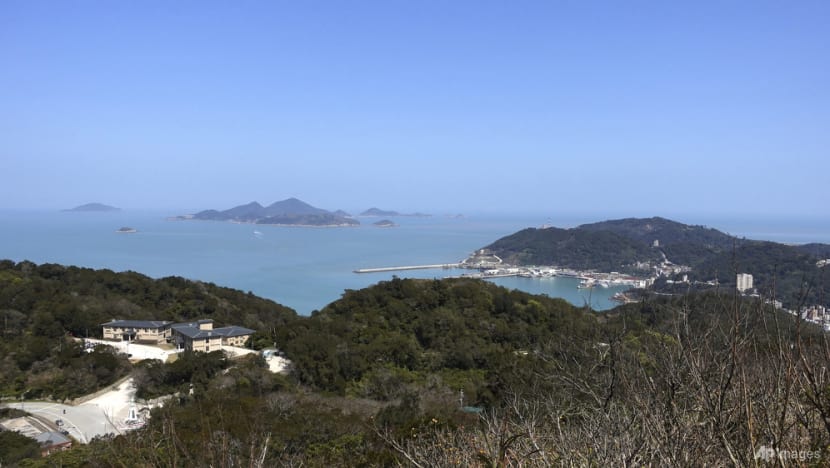
A view from an observation deck on Nangan, part of Taiwan's Matsu Islands, on Mar 7, 2023. (Photo: AP/Johnson Lai)
NANGAN, Taiwan: In the past month, bed-and-breakfast owner Chen Yu-lin had to tell his guests that he could not provide them with the Internet.
Others living in Taiwan's Matsu Islands, a group of outlying islands closer to neighbouring China, had to struggle with paying electricity bills, making a doctor's appointment or receiving a package.
For connecting to the outside world, the Matsu Islands' 14,000 residents rely on two submarine Internet cables leading to Taiwan's main island.
The first cable was severed by a Chinese fishing vessel about 50km out at sea. Six days later, on Feb 8, a Chinese cargo ship cut the second, according to Chunghwa Telecom, Taiwan's largest service provider and owner of the cables.
The islanders in the meantime were forced to hook up to a limited Internet via microwave radio transmission, a more mature technology, as backup. It means that one could wait hours to send a text. Calls would drop, and videos were unwatchable.
"A lot of tourists would cancel their booking because there's no Internet. Nowadays, the Internet plays a very large role in people's lives," said Chen, who lives in Beigan, one of the archipelago's main residential islands.
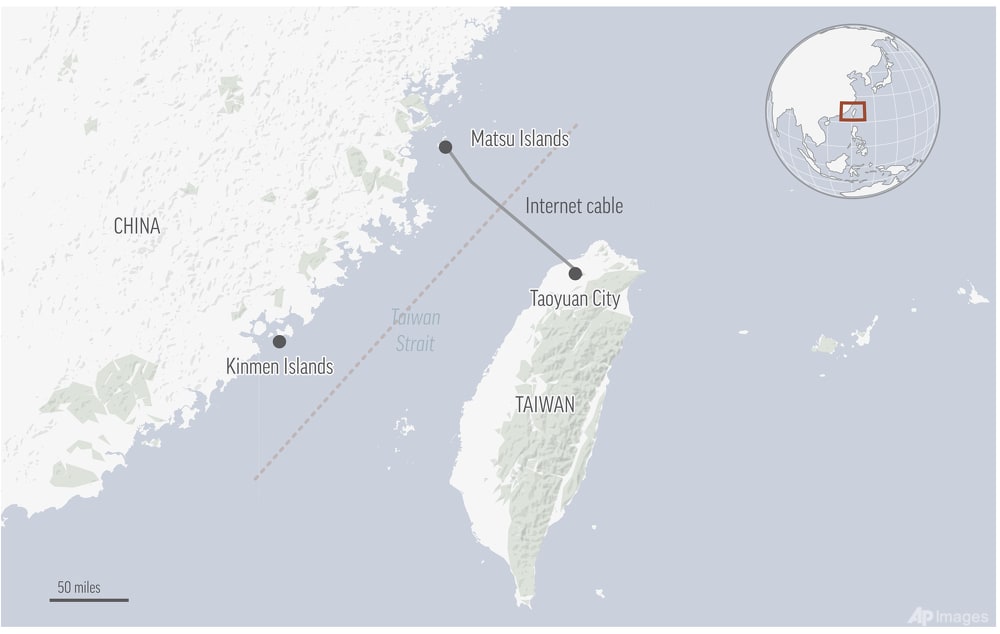
Apart from disrupting lives, the loss of the Internet cables, seemingly innocuous, has huge implications for national security.
As the full-scale invasion of Ukraine has shown, Russia has made taking out Internet infrastructure one of the key parts of its strategy.
Some experts suspect that China may have cut the cables deliberately as part of its harassment of the self-ruled island it considers part of its territory, to be reunited by force if necessary.
China regularly sends warplanes and navy ships toward Taiwan as part of tactics to intimidate the island's democratic government. Concerns about China launching an invasion, and Taiwan's preparedness to withstand it, have increased since the war in Ukraine began.
The cables had been cut a total of 27 times in the past five years, according to Chunghwa Telecom.
Taiwan's coast guard gave chase to the fishing vessel that cut the first cable on Feb 2, but it went back into Chinese waters, according to a person who was briefed on the incident and was not authorised to discuss the matter publicly.
So far, the Taiwanese government has not pointed a direct finger at Beijing.
"We can't rule out that China destroyed these on purpose," said Su Tzu-yun, a defence expert at the Institute for National Defense and Security Research, a government think-tank, citing research which showed that only China and Russia had the technical capabilities to do this.
"Taiwan needs to invest more resources in repairing and protecting the cables."
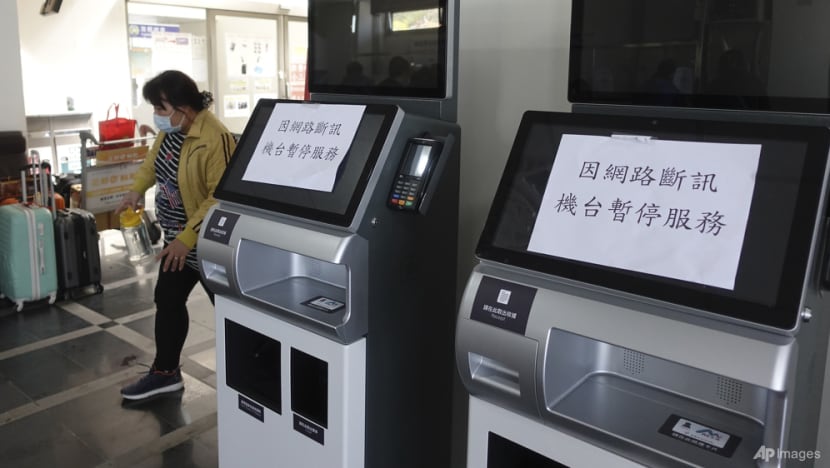
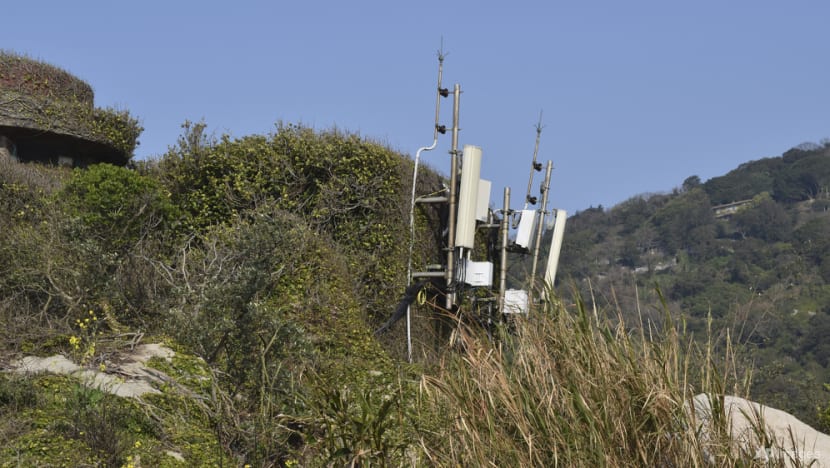
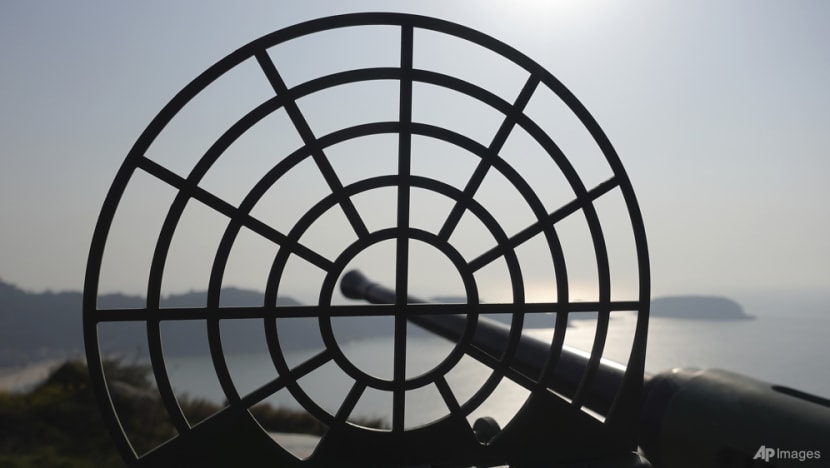

Internet cables, which can be anywhere between 20mm to 30mm wide, are encased in steel armour in shallow waters where they are more likely to run into ships.
Despite the protection, cables can get cut quite easily by ships and their anchors, or fishing boats using steel nets.
Even so, "this level of breakage is highly unusual for a cable, even in the shallow waters of the Taiwan Strait", said Geoff Huston, chief scientist at the Asia Pacific Network Information Centre, a non-profit that manages and distributes Internet resources like IP addresses for the region.
Without a stable Internet, coffee shop owner Chiu Sih-chi said that seeing the doctor for his toddler son's cold became a hassle because first they had to visit the hospital just to get an appointment.
A breakfast shop owner said that she lost thousands of dollars in the past few weeks because she usually takes online orders. Customers would come to her stall expecting the food to be ready when she had not even seen their messages.
Related:
Faced with unusual difficulties, residents of the Matsu Islands came up with all sorts of ways to organise their lives.
One couple planned to deal with the coming peak season by having one person stay in Taiwan to access their reservation system and passing the information on to the other via text messages.
Wife Lin Hsian-wen extended her vacation in Taiwan during the off-season when she heard that the Internet back home was not working and is returning to the islands later in the week.
Some enterprising residents went across to the other shore to buy SIM cards from China, though those only work well in the spots closer to the Chinese coast, which is only 10km away at its closest point.
Others, like bed-and-breakfast owner Tsao Li-yu, would go to Chunghwa Telecom's office to use a Wi-Fi hotspot the company had set up for locals to use in the meantime.
"I was going to work at (Chunghwa Telecom)," Tsao joked.
Chunghwa had set up microwave transmission as backup for the residents. Broadcast from Yangmingshan, a mountain just outside of Taipei, Taiwan's capital, the relay beams the signals about 200km across to the Matsu Islands.
Since last Sunday (Mar 5), speeds had been noticeably faster, residents said.

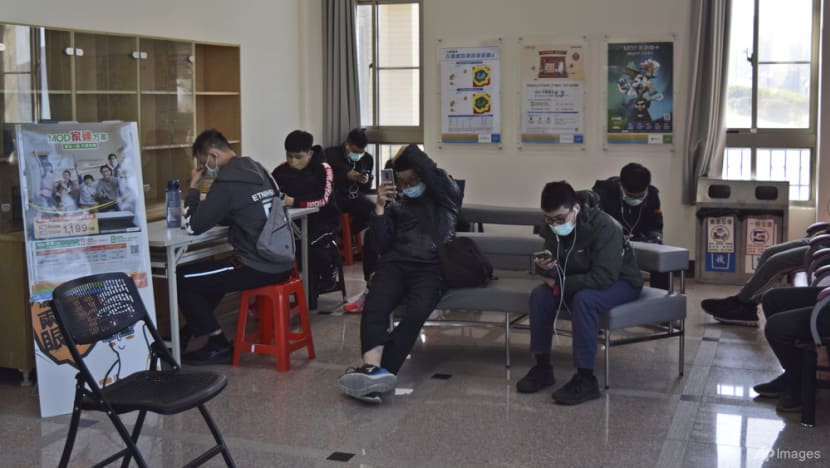


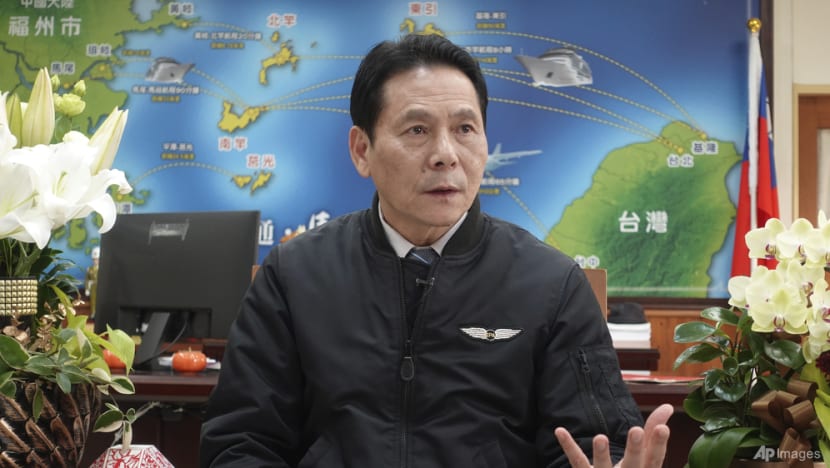
Wang Chung-ming, the head of Lienchiang County, as the Matsu Islands are officially called, said that he and the legislator from the region went to Taipei shortly after the Internet broke down to ask for help, and were told they would get priority in any future Internet backup plans.
Taiwan's Ministry of Digital Affairs publicly asked for bids from low-Earth orbit satellite operators to provide the Internet in a backup plan, after seeing Russia's cyberattacks in the invasion of Ukraine, the head of the ministry, Audrey Tang, told the Washington Post last year.
Yet, the plan remains stalled as a law in Taiwan requires the providers to be at least 51 per cent owned by a domestic shareholder.
A spokesperson for the Digital Ministry directed questions about the progress of backup plans to the National Communications Commission (NCC).
NCC said that it will install a surveillance system for the undersea cables, while relying on microwave transmission as a backup option.
Many Pacific island nations, before they started using Internet cables, depended on satellites - and some still do - as backup, said Jonathan Brewer, a telecommunications consultant from New Zealand who works across Asia and the Pacific.
There is also the question of cost. Repairing the cables is expensive, with an early estimate of NT$30 million (US$1 million) for the work of the ships alone.
"The Chinese boats that damaged the cables should be held accountable and pay compensation for the highly expensive repairs," said Wen Lii, the head of the Matsu Islands chapter of the ruling Democratic Progressive Party.
Related:
Wang, the head of Lienchiang County, said that he had mentioned the cables on a recent visit to China, where he had met an executive from China Mobile.
They offered to send technicians to help. But compensation, he said, will require providing hard proof on who did it.
China's Taiwan Affairs Office did not respond to a faxed request for comment.
For now, the only thing that residents can do is wait. The earliest cable-laying ships can come is Apr 20, because there are a limited number of vessels that can do the job.
A month without functional Internet has its upsides too.
Chen Yu-lin, the bed-and-breakfast owner, has felt more at peace. It was hard in the first week, but he quickly got used to it.
"From a life perspective, I think it's much more comfortable because you get fewer calls," he said, adding that he was spending more time with his son, who is usually playing games online.
At an Internet cafe where off-duty soldiers were playing offline games, the effect was the same.
"Our relationships have become a bit closer," said one soldier who only gave his first name, Samuel. "Because normally when there's Internet, everyone keeps to themselves, and now we're more connected."












